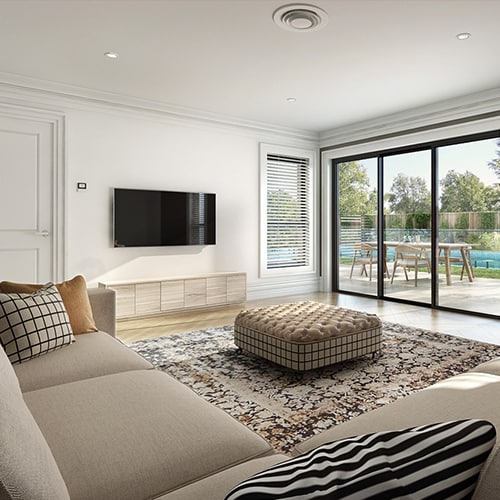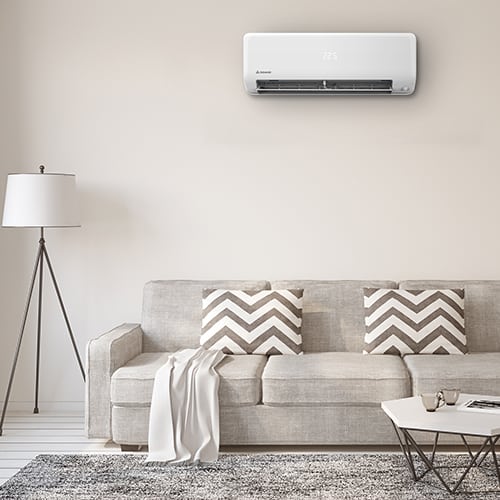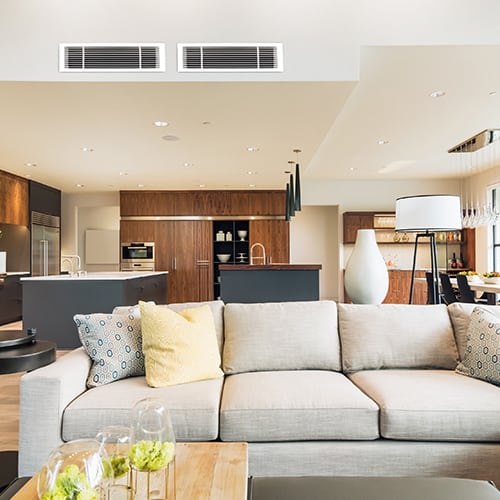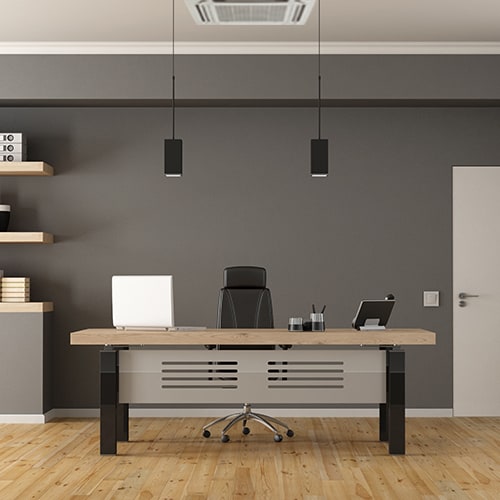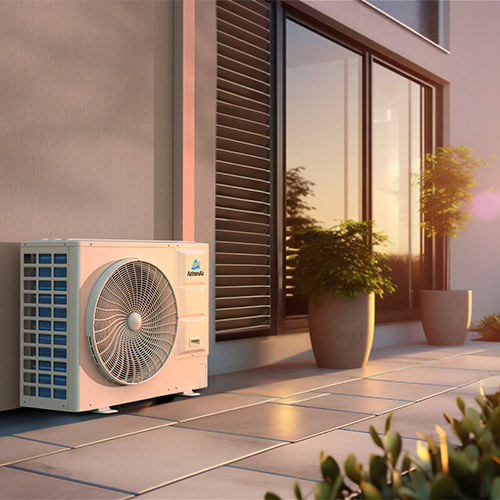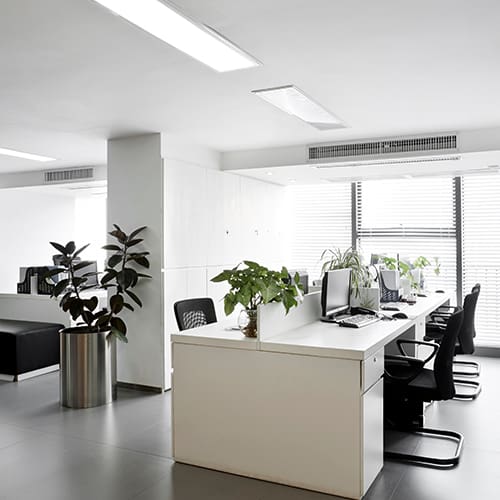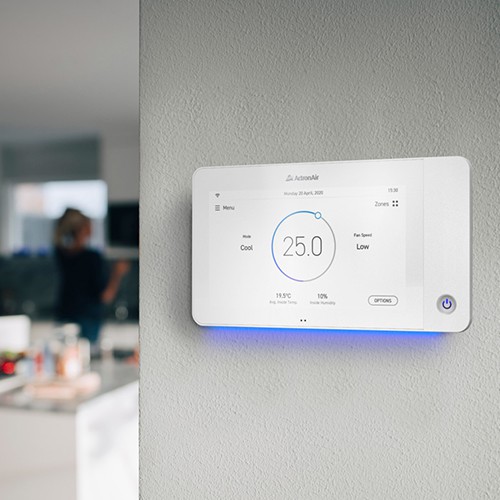With winter on the way, it’s time to think about keeping our homes warm. There are many different ways to heat your house, each with its own strengths and weaknesses. Developments in technology, as well as changes to electricity and gas prices have influenced the market, making new options more competitive with traditional heating methods.
These days, some of the most common home heating systems include reverse cycle air conditioners, gas heaters, electric heaters, fireplaces and underfloor heating. It is hard to declare an outright best heating method as there are several factors to consider. Some of the most important aspects of each technology include their upfront cost, their long term running costs, ease of use, control, danger, localised pollution and environmental impact.
Reverse Cycle Air Conditioners
Reverse cycle air conditioners are just like your everyday air conditioner, except they can warm up your home as well. Instead of using energy to create heat, they use energy to capture heat from the outdoor air and bring it inside. These days they are quite efficient at heating in most climates, however many models don’t function effectively at extremely low temperatures, so if you live in a cold or mountainous region, other choices may be better for heating.
While reverse cycle air conditioners do tend to have a high up front cost, you also need to take their dual use as a cooling unit into account. Many Australians deem air conditioning a necessity for the summer, so a reverse cycle system might not work out as expensive as it seems. These systems can also save space in your home, by needing just a single unit instead of a heater as well as your air conditioner.
The running costs of a reverse cycle air conditioner will depend on where you live and your electricity prices. If your home has solar panels, they can also help to bring down the cost. In fact, a University of Melbourne study found that reverse cycle heating was cheaper to run than gas heating in every city that they tested.
The thermostat in reverse cycle air conditioners allows you to adjust and keep your home at the perfect temperature, which means you don’t waste energy on overheating. As far as the environmental impact is concerned, it really depends on your energy source. Much of Australia is powered by coal, which has a significant environmental impact. Those who have solar panels may be able to alleviate some of this, but unless you have battery storage, you will generally be heating your home at night when the panels aren’t working.
Gas Heaters
These heaters can be a good option if you are in a location that has a gas connection. They are relatively efficient and have long been seen as good value for money. Despite this tradition, rising gas prices and changing technologies have led the above-mentioned study to indicate that reverse cycle air conditioners are now cheaper to run.
Users also have to be careful because gas heaters produce carbon monoxide, which can be deadly, and water, which can cause mould in your home. Flued heaters tend to take care of this issue, because they have a pipe that transports the waste outside. Unflued heaters leave their fumes inside the room, so ventilation is important for keeping safe.
Gas heaters tend to have lower upfront costs than reverse cycle air conditioners, however they can’t be controlled as precisely. While air conditioners may be more efficient heaters, it is hard to compare the environmental impact, because it depends on the local power source.
Electric Heaters
Electric heaters are portable and good for small spaces or occasional use. They work by using a heating element to convert electricity to heat. Radiant heaters reach high temperatures and often pose a significant fire danger. They function by emitting heat, which travels through the room and warms people and objects directly.
Electric heaters on the whole are cheaper upfront, however their poor energy efficiency means that they have high running costs. They also aren’t suitable for heating more than just a single room or person. Because of their poor efficiency, they have quite a high environmental impact.
Fireplaces
As one of the most cosy ways to heat a home, fireplaces are often chosen for their ambiance as much as their heating abilities. They can have relatively high upfront costs, because a chimney will need to be installed for the smoke. The long term running costs vary widely. Those who live in rural areas may be able to get firewood for free. For others, it can be quite expensive.
Fireplaces are actually quite efficient as long as a slow-combustion wood stove is used to burn well-seasoned firewood. Assuming that your firewood is sustainable and that your home is otherwise powered by coal, heating your home with firewood can be better for the environment than other methods. Despite this, it is unsuitable for densely populated areas, because the smoke adds to local pollution.
Underfloor Heating
These systems have either heating cables or water pipes set in the floor. Electricity or hot water flows through them and warms the floor through conduction. The floor then radiates heat to the cool surfaces of the home. Because underfloor heating doesn’t create much air circulation, a room becomes comfortable at lower temperatures than other methods.
Underfloor heating can be expensive to install in existing homes, so it is often best to consider for new builds. It is a relatively efficient way to heat a home and is comparable to reverse cycle air conditioning in both running costs and environmental impact.
The Best Home Heating System
Each of these heating methods has their own unique advantages. A fireplace can be great if you have free access to firewood, but not so much in the city. Underfloor heating is comfortable and efficient, but the costs to install it in an existing home can be prohibitive. Gas heating is a reasonable all-round choice, but not everyone has access to it. And whilst reverse cycle air conditioners may have high upfront costs, these are offset by their cooling capabilities. They are also one of the most efficient and easy to control choices. In the end, the best heating for your home will all depend on your unique situation.


